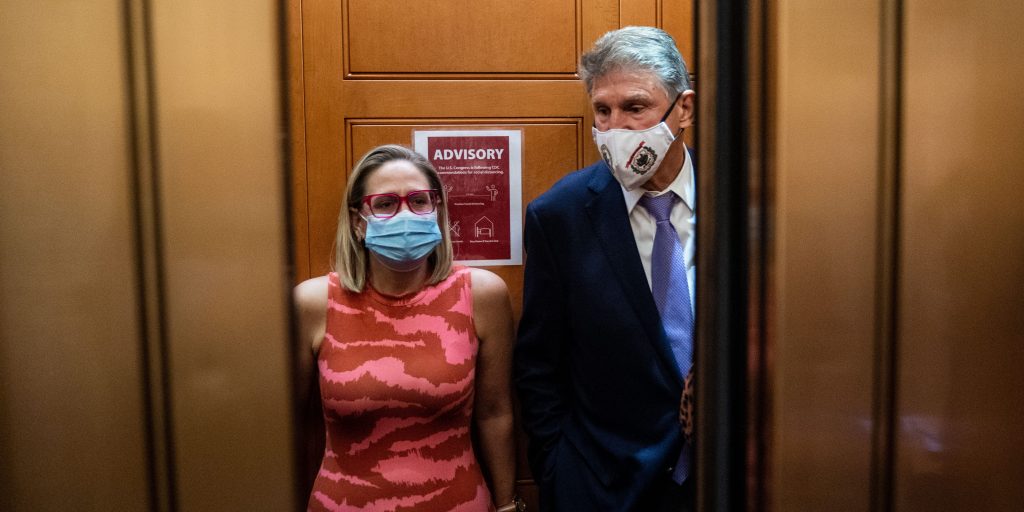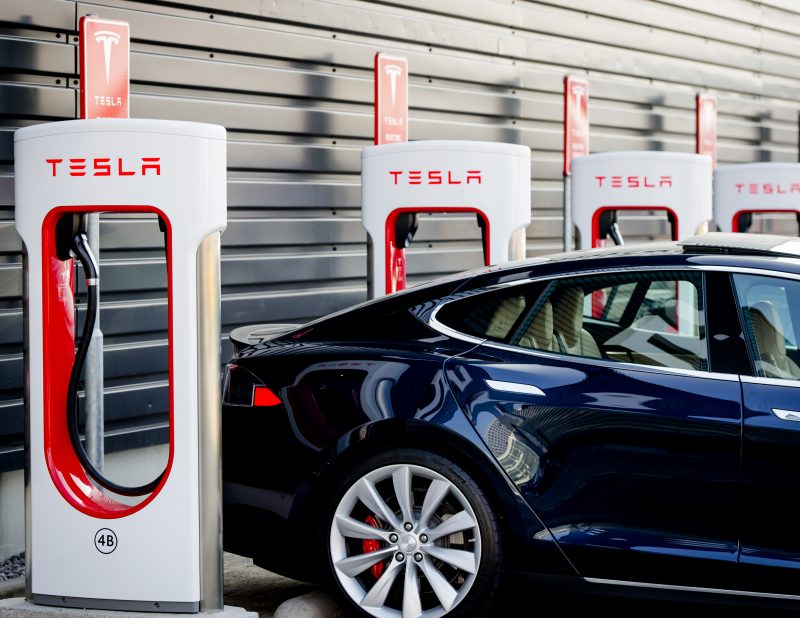- Sen. Kyrsten Sinema is ready to "move forward" with Democrats' Inflation Reduction Act.
- The update comes after days of silence from the Arizona moderate, who was the last holdout.
- Senate Majority Leader Chuck Schumer said the final version of the bill will be introduced on Saturday.
Democrats in array.
Senate Majority Leader Chuck Schumer announced Thursday evening that all 50 Democratic senators had reached an agreement over the party's reconciliation bill: the Inflation Reduction Act.
Sinema was the lone Democratic holdout on the $740 billion dollar Inflation Reduction Act of 2022 legislation that was struck in a surprise deal last week between Manchin and Senate Majority Leader Chuck Schumer in an effort to revive parts of President Joe Biden's economic agenda.
Sinema said in a statement that Democrats had agreed to a couple of key changes to the legislation after negotiations, including removing a wealthy investors tax.
"We have agreed to remove the carried interest tax provision, protect advanced manufacturing, and boost our clean energy economy in the Senate's budget reconciliation legislation," Sinema said in a statement.
She added that she was willing to advance the legislation pending further review from a top Senate official that ensures it complies with budgetary rules. Sinema said that she was willing to
The final version of the bill will be introduced on Saturday, Schumer said.
"I am pleased to report that we have reached an agreement on the Inflation Reduction Act that I believe will receive the support of the entire Senate Democratic conference," Schumer said in a statement. "I have had many productive discussions with members of our conference over the past three days and we have addressed a number of important issues they have raised.
"The agreement preserves the major components of the Inflation Reduction Act, including reducing prescription drug costs, fighting climate change, closing tax loopholes exploited by big corporations and the wealthy, and reducing the deficit by $300 billion," he added.










